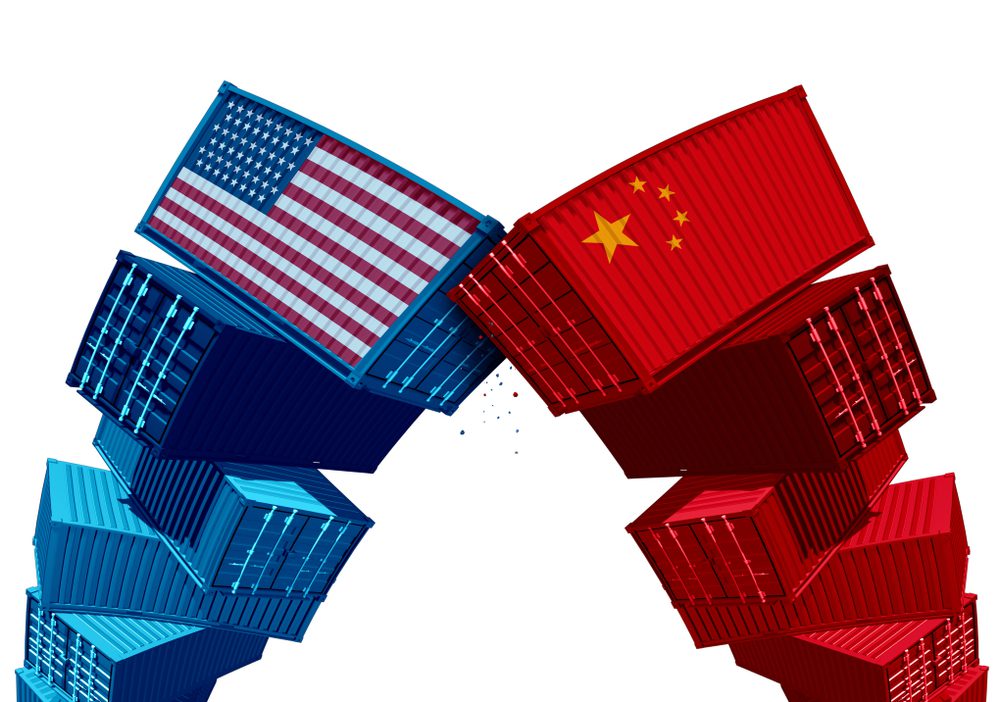As promised by both countries, the United States and China have each implemented $34 billion in tariffs on goods. Bloomberg News has now reported that U.S. President Donald Trump is threatening to impose new tariffs on every import from China. Overall, this could amount to over 500 billion dollars. Throughout his presidency, Trump has continuously commented on the “excellent” status of the U.S. economy, but Jack Crowe of National Review noted that many believe the trade war will “disrupt the strong economic performance.” Trump, however, is determined to reach a deal that is fair to the U.S. and he never seems to let the naysayers influence his decisions.
In the middle of June, Trump stated that although his relationship with Chinese President Xi Jinping is extremely important to him, the current trade situation is “no longer sustainable.” He has announced several times that the U.S. is at a distinct disadvantage and cannot proceed with the trade deals that were in place at the start of his presidency. Most experts, however, believe that the U.S. will suffer from the trade war more than China, though the war will be “self-destructive” to both countries. Analysts from both countries have predicted that the tariffs will lead to job losses and continuously decreasing consumer confidence.
There has been much backlash from the other countries the U.S. has already imposed tariffs on, including the European Union, Canada, Japan, and Mexico. Now, the Chinese Ministry of Commerce has released a statement accusing the U.S. of igniting “the largest trade war in economic history” as well as “bullying.” A trending LinkedIn news release reported that Chinese officials had indicated that China is “being forced to strike back as necessary.” Not only does this include slapping more tariffs on the U.S., but China could also use other retaliatory measures such as quarantining U.S. products for an extended period of time or making it harder for products to clear customs.
China has made it clear that the country does not want a trade war and believes it will be detrimental to both sides, but they have carried out their promises of striking back against the U.S.’s tariff impositions. John W. Schoen of CNBC reported that China has put tariffs on many imports, one of the most notable being soybeans. This is important because U.S. farmers were some of Trump’s strongest supporters throughout his campaign and his presidency. A FiveThirtyEight article published in April of 2018 reported that this could cost Trump many farmers’ votes in 2020, especially in states such as Michigan and Pennsylvania. Other goods China has imposed tariffs on include meats, whiskey, airplane equipment, and vehicles.
Trump has accused the Chinese of stealing intellectual property, which would be a national security threat. Opponents, however, think this is a stretch and Trump is “reaching.” China has denied this as well and is promising to retaliate for every move Trump makes. However, an article from The Independent stated that Trump isn’t worried, as he has stated numerous times that “trade wars are easy to win.” The hope of many is that he will be able to negotiate with China (and other countries), as he has been making negotiations for several decades seeing as he was a prominent businessman.
Through the tough rhetoric and the uncomfortable discord, many people and governments have spoken out saying that equitable trade agreements would be much better than imposing exorbitant tariffs on goods. Trump, however, is adamant that any deal made needs to be fair to the U.S., so if a fair deal isn’t reached, it appears he will not back down from the tariff impositions.








